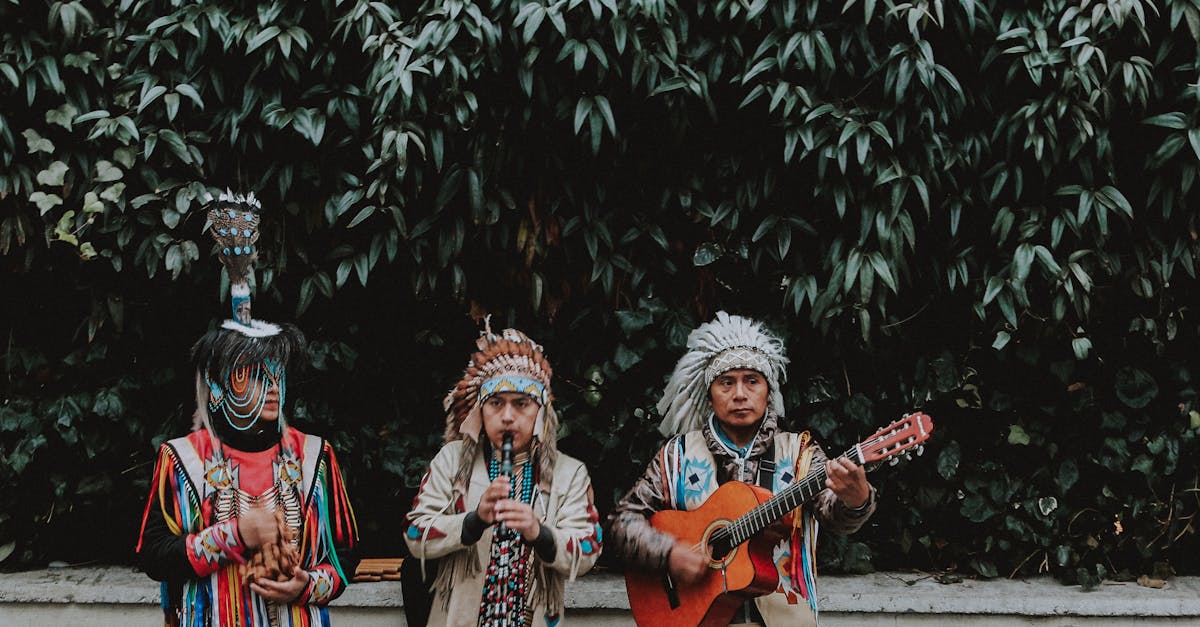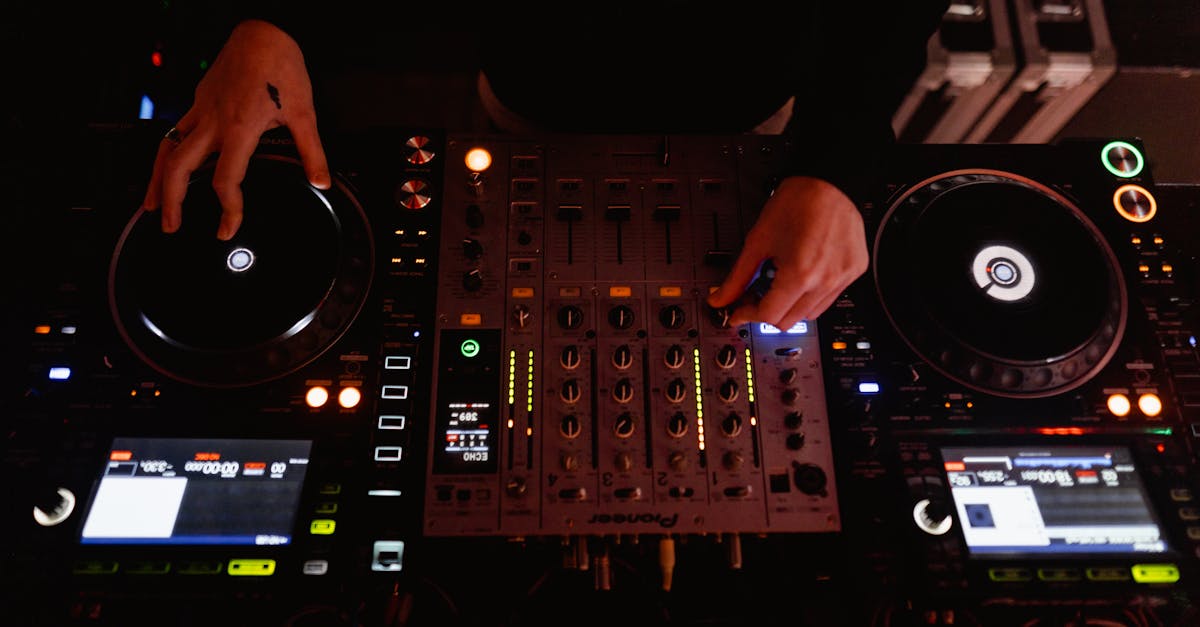World Music Alchemy Exploring The Global Beat
Introduction
World music, a glorious amalgamation of sounds, instruments, and rhythms, spans continents with its vibrant and diverse landscape. Defined by its cultural richness, world music integrates traditional elements with contemporary ones, producing a unique auditory experience. Artists and musicians globally draw upon their heritage, often blending it with other styles to create something new and exciting. From the soulful strains of the African kora to the high-energy beats of Brazilian samba, this genre transcends boundaries, awakening listeners' passion for discovery. As more people embrace global beats, world music continues to evolve, merging tradition with innovation in countless fascinating ways. This article delves into the enchanting fusion of world music and its impact on the global soundscape.
Advertisement
The Roots of World Music
World music is rooted in the rich traditions and cultures of various communities worldwide. Its origins can be traced to folk music, where local stories and histories were passed down through generations in musical form. Traditional instruments such as the Indian sitar, the Japanese shamisen, and the African djembe have played pivotal roles in these narratives. Despite its ancient roots, world music witnessed a revival in the 20th century, with Western audiences beginning to explore and appreciate these diverse sounds. Radio stations and music festivals dedicated to global music further helped cultivate its popularity. The fusion of different musical traditions over time has led to an explosion of creative expression, symbolizing the interconnectedness of different cultures.
Advertisement
A Kaleidoscope of Influences
The beauty of world music lies in its ability to absorb and incorporate a myriad of influences from various regions. This genre is ever-evolving, showcasing a kaleidoscope of cultural elements. For instance, the fusion of African rhythms with Jamaican reggae has given birth to new musical styles such as AfroReggae. Meanwhile, the collaboration between Western pop artists and Indian musicians has produced melodious Indo-pop. The academic and artistic exchanges between different communities have enhanced the genre's richness, making it more accessible to curious listeners. Artists are continually experimenting, combining their native sounds with elements from jazz, rock, electronic, or classical music, leading to innovative audio experiences.
Advertisement
The Role of Technology
Technology has played an essential role in catapulting world music onto the global stage. With the rise of the internet and digital streaming platforms, music lovers can explore the sounds from different cultural backgrounds with just a few clicks. Social media platforms and video-sharing websites like YouTube have further democratized music access, enabling artists to reach wider audiences. Technological advancements in music production and distribution have facilitated collaborations between artists from diverse regions, thus contributing to the genre’s expansion. Furthermore, accessible tools for music creation have empowered local musicians, enabling them to preserve their cultural heritage while experimenting with new sounds.
Advertisement
Vibrant Festivals and Events
World music thrives in live performances, with festivals and events serving as its cultural hub. These gatherings celebrate the global beat, offering attendees a chance to experience the fusion of different musical styles firsthand. Renowned festivals like WOMAD (World of Music, Arts and Dance) and the Festival au Désert in Mali attract thousands of enthusiasts each year. Such events provide a platform for established and emerging artists, fostering cross-cultural exchanges and creativity. The vibrant atmosphere of these festivals allows attendees to immerse themselves in the magic of world music, with opportunities to dance, sing, and experience the rhythm of different cultures. This immersive experience often sparks cultural curiosity, creating lifelong fans of the genre.
Advertisement
Educational Impact of World Music
Beyond entertainment, world music serves as an educational tool, preserving and promoting cultural heritage. Many educational institutions have incorporated world music studies into their curriculum, recognizing its importance in understanding cultural diversity. These programs explore various musical traditions, delving into the historical and cultural contexts that shaped them. Workshops and lectures by seasoned musicians are designed to promote cultural awareness and appreciation among students. By examining the social, political, and economic factors that influence musical styles, learners gain insights into the world's intricate cultural tapestry. This educational approach fosters a greater understanding and respect for different cultures, breaking down barriers and encouraging unity.
Advertisement
Pioneers of World Music
Several artists have been instrumental in bringing world music to international prominence. Pioneers like Fela Kuti, who combined jazz and funk with Nigerian rhythms to create Afrobeat, have made a lasting impact. Ravi Shankar introduced the enchanting sounds of the sitar to Western audiences, inspiring collaborations with famous names like George Harrison of The Beatles. Similarly, the Buena Vista Social Club album rejuvenated interest in traditional Cuban music, winning critical acclaim globally. These artists, along with many others, have contributed significantly to world music's recognition and acceptance. By breaking down genre barriers, they have inspired new generations of musicians to explore and innovate, ensuring that world music remains a dynamic and evolving art form.
Advertisement
Challenges and Opportunities
Despite its growing popularity, world music faces certain challenges in the global music industry. Traditional musicians often struggle to gain mainstream recognition beyond their local communities. Language barriers and cultural differences may affect the genre's global appeal. However, the increasing interest in cultural diversity and sustainability provides opportunities for world music to thrive. Companies, organizations, and artists are developing initiatives to support and promote this genre, ensuring its inclusion in the broader music ecosystem. Efforts to promote cultural exchange programs and world music tours can help overcome these challenges, offering opportunities for greater cultural understanding.
Advertisement
The Future of World Music
The future of world music is promising, as it continues to influence and be influenced by other musical genres. Artists are pushing boundaries, experimenting with unconventional sounds and instruments to redefine this genre. The rise of globalism and a keen interest in cultural diversity suggest that world music will remain relevant for years to come. As more individuals recognize the value of cultural preservation, the genre will witness further innovation and collaboration. With dedicated platforms, events, and a growing fan base, world music is poised to captivate and inspire future generations.
Advertisement
Conclusion
World music embodies the spirit of cultural fusion and innovation, connecting people across the globe through a shared love for rhythm and melody. Its ability to transcend boundaries and bring people together underlines the significance of cultural exchange and unity. Artists worldwide continue to blend traditional and contemporary elements, enriching the global music landscape. As listeners engage with world music, they gain appreciation for diverse traditions and history, fostering mutual respect and understanding. In a world that thrives on cultural diversity, world music remains a vital component of global harmony, connecting hearts and spirits through its universal language.
Advertisement







